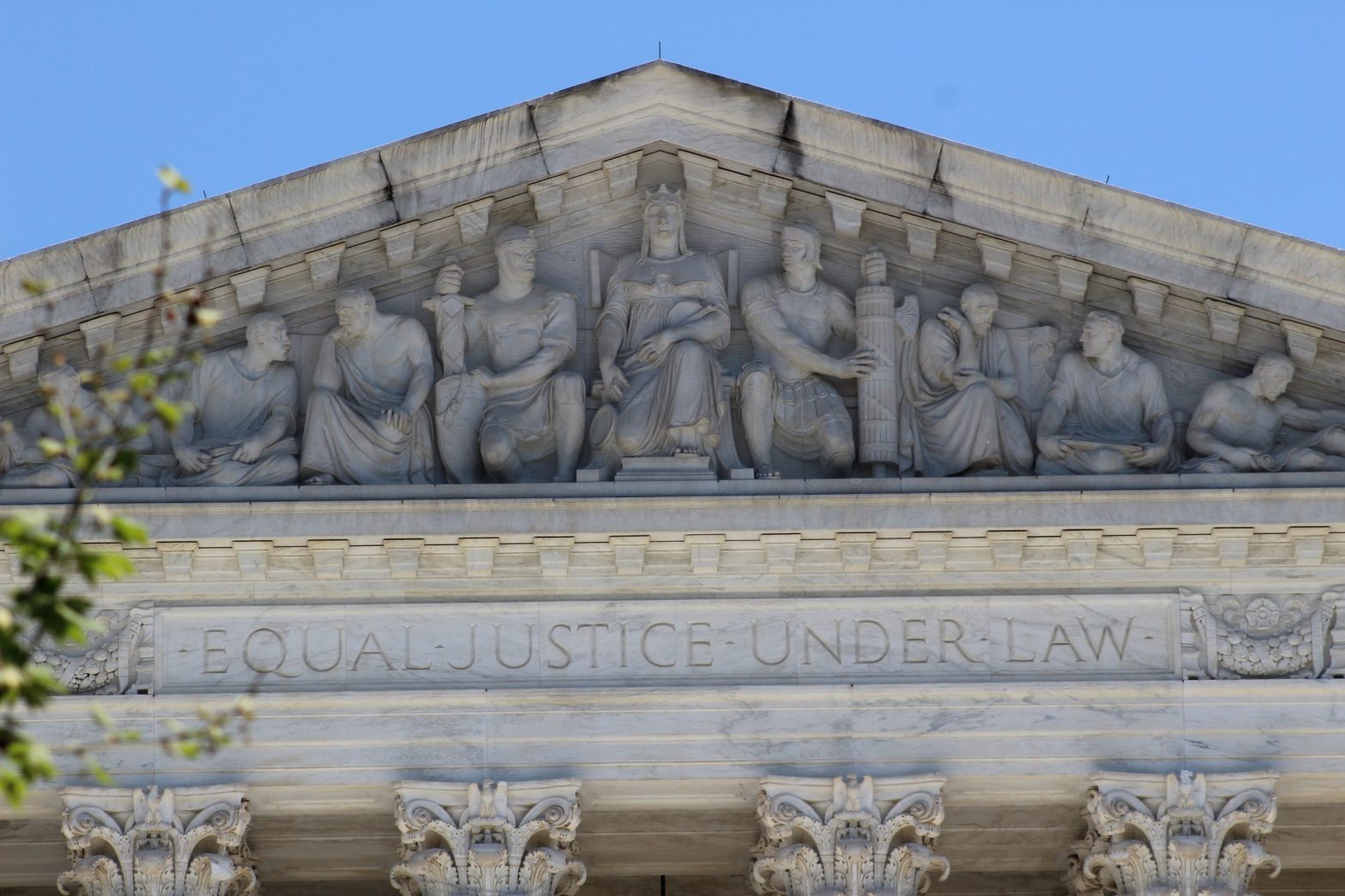Trans Asylum Seeker Can Fight Removal in Appeals Court

WASHINGTON — The U.S. Supreme Court ruled Thursday that a transexual woman who fled her native country of Guatemala due to alleged gender violence and death threats can appeal her removal from the U.S. in a federal appeals court.
Leon Santos-Zacaria, who now goes by the name Estrella, fled Guatemala in her teens and eventually sought refuge in the United States. After a brief stay in the U.S. in 2008, immigration authorities ordered her removal from the country.
Santos-Zacaria returned to the U.S. in 2018 and was apprehended again by immigration authorities.
At that point, Santos-Zacaria sought protection from removal, based on the likelihood she would be persecuted and possibly killed if she returned to Guatemala.
An immigration judge within the Department of Justice entered an order reinstating Santos-Zacaria’s prior removal order and denying the protection she sought, and the Board of Immigration Appeals later upheld that decision.
In doing so, however, the Board of Immigration Appeals agreed that Santos-Zacaria had suffered past persecution in Guatemala and was therefore entitled to a presumption of future persecution.
While that was a win for Santos-Zacaria, it then turned around and ruled that this presumption was rebutted — an issue the immigration judge had never considered.
On appeal to the 5th U.S. Circuit Court of Appeals, Santos-Zacaria argued that in concluding the presumption of future persecution was rebutted, the Board of Immigration Appeals had impermissibly engaged in fact-finding that only the immigration judge could perform.
The 5th Circuit dismissed her case on the technical grounds that she had failed to exhaust administrative remedies under federal law and that it therefore had no jurisdiction in the case.
As noted in the court documents, the decision placed a spotlight on a disagreement among the federal circuit courts of appeal on whether the federal exhaustion requirement is jurisdictional, and whether the law requires a plaintiff to seek discretionary administrative review, like reconsideration by the Board of Immigration Appeals.
Writing for the Supreme Court majority, Justice Ketanji Brown Jackson found the statutory scheme that Santos-Zacaria was subjected to was effectively “incoherent” and the requirement that she seek administrative review before turning to the federal courts was a misreading of the law.
“The statute gives noncitizens the same 30-day window from the agency order to seek judicial review and administrative reconsideration,” she wrote. “The statute is thus designed around pursuing judicial review and agency reconsideration in parallel, not waiting to seek judicial review until after reconsideration is complete.
“With respect to a prior version of this scheme, we observed that, if a noncitizen seeks reconsideration, the statute plainly ‘contemplates’ that ‘two separate petitions for [judicial] review will exist in the normal course’: one from the agency’s initial order and a later one from its decision on the reconsideration motion.
“If reconsideration were required for exhaustion, however, only one petition — the later one — would pass muster,” Jackson continued. “The first petition would be premature. So the government’s interpretation of remedies ‘available … as of right’ would not just flood the board with reconsideration motions that noncitizens otherwise would not file; it would also flood the courts with pointless premature petitions — petitions that the statutory scheme would provide for noncitizens to file, on the one hand, yet deem unexhausted, on the other.
“We decline to interpret the statute to be so at war with itself,” she added.
Later, Jackson wrote that the government’s approach would introduce a number of practical difficulties into the process of filing an immigration appeal.
“If motions to reconsider are required only sometimes, what cases qualify?” she asked. “In this very case, the members of the Court of Appeals panel disagreed about whether a motion to reconsider was required under the government’s rule, largely because they differed over whether Santos-Zacaria had asserted adequately to the board earlier that new fact finding would be impermissible.
“How are noncitizens — already navigating a complex bureaucracy, often pro se and in a foreign language — to tell the difference?” Jackson continued. “The government’s position presents a world of administrability headaches for courts, traps for unwary noncitizens, and mountains of reconsideration requests for the board (filed out of an abundance of caution by noncitizens unsure of the need to seek reconsideration). … We are confident that Congress did not adopt such a scheme.”
The court remanded the case to the 5th Circuit for further proceedings.
Dan can be reached at [email protected] and at https://twitter.com/DanMcCue























